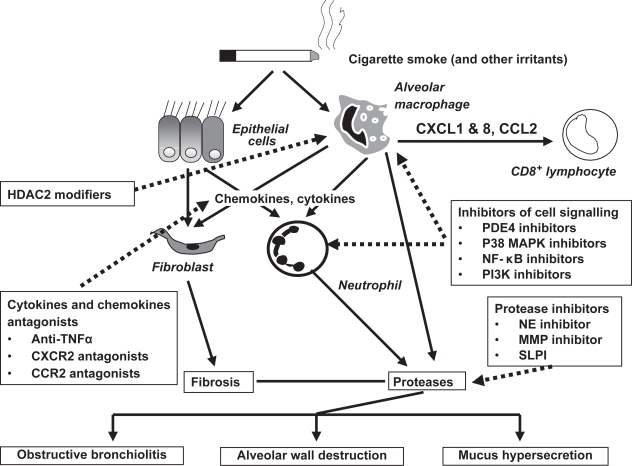Figure 2.
Emerging anti-inflammatory therapy. The chronic, persistent inflammation and tissue remodeling that ensues in COPD is thought to be responsible for both the symptoms of disease and also the progressive decline in lung function. The loss of airway function appears to be related to the destruction of alveoli resulting in a loss of elasticity linked to increased protease activity in emphysema, and/or obstruction and fibrosis of the (small) airways as a result of inflammation and mucus hypersecretion in chronic bronchitis. Emerging anti-inflammatory therapies under clinical investigation attack this chronic pulmonary inflammation via several strategies. Signaling pathway inhibitors such as PDE4 inhibitors, MAPK p38 inhibitors, NF-κB signaling inhibitors and PI3K inhibitors are in development. Reduction of pleiotropic inflammatory cytokines such as TNFα using monoclonal antibodies that target the ligands, or soluble receptors that bind and inactivate TNFα may also reduce the inflammatory burden in the lung. Targeting chemokines like CCL2 and CXCL8 may reduce the influx of inflammatory cells into the lungs from the circulation by reducing the chemotactic gradient. Inhibition of protease activity in the lung may attenuate lung tissue damage and reduces the numbers of lung neutrophils. Increased HDAC2 expression restores the sensitivity for steroids in the treatment of COPD. Reducing the severity of inflammation and tissue remodeling may improve lung function and slow the progression of COPD.

